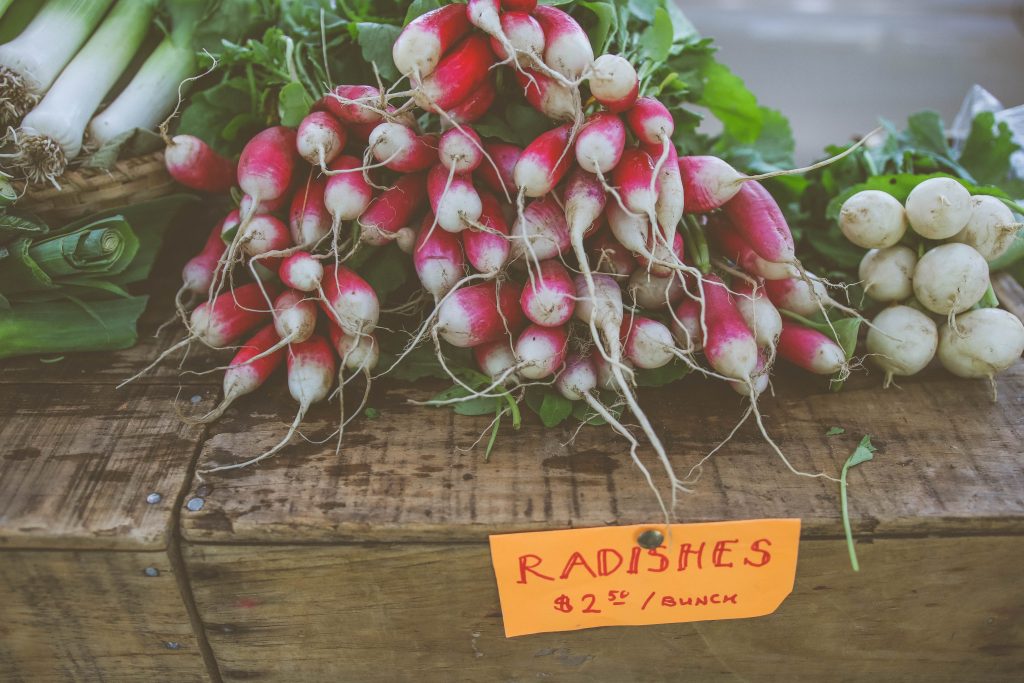Revel in Your Local Markets

I love farmers markets. I love the stalls arranged with each farmers’ diverse bounty, the variety of brightly pigmented produce, the scent of freshly picked herbs and floral bouquets. I love the chance to observe the change in seasons through the variety of foods offered. This Saturday morning ritual helps me feel connected to my community as I bump into friends and acquaintances. And, I delight in engaging the farmers, whose passion is a deep alliance to the earth, in all topics “vegetables”, and we often exchange ideas on recipes.
I love farmers market so much, that I even seek them out when I travel. On a recent trip to San Francisco, I spent a morning at the farmers market amazed at the variety of radishes, from watermelon to purple daikon, to black, to breakfast, to German giant—the options astounded me. From a nutritional standpoint, each variety brings its own unique set of phytochemicals to the table. And herein lies the magic. The phytonutrients contained in the diversity of the radish kingdom promote vitality in us all.
From an environmental standpoint, locally grown food tastes better than industrial farmed mono-crops. Local farmers, who practice sustainable and organic farming practices, understand the art of tending crops, amending the soil with organic plant and animal compost, rotating fields, and allowing the soil time to rest with cover crops that get turned into the soil to nourish it. From a nutritional standpoint the food is richer. Not just from what’s been added to the soil, but from what’s been intentionally left out. When a seed is planted in compost rich soil, and is free to grow without added chemicals, it pulls from its wellspring, nutrients that protect itself from weeds, disease or other pests.
In other words, its immune system becomes stronger and can fight off disease. The same chemicals that keep the plant strong and healthy, also help you stay strong and healthy. Conventional spinach that’s been treated with pesticides and herbicides doesn’t have to develop an immune system to protect itself, and thus doesn’t convey those important nutrients to the diner. Nutritionally speaking, shopping for locally produced and varied food is the best way to get all that nature has to offer.
As the temperatures drops, I look forward to locally grown kale and spinach, whose tender leaves become sweeter in cooler temps. I start trolling the internet looking for good recipes for Brussels sprouts and cabbage. Roasted hard winter squash replaces zucchini noodles and Saturday afternoons are spent turning butternut squash into butternut bisque.
And while my local farmers market will soon be packing up and closing its umbrellas for the season, I’ve found other ways to continue to eat locally. Winter farmers markets are sprouting up and my local CSA has begun offering a winter share. Indeed, many farmers continue the idea of a “market” and are searching out space indoors to continue to sell their hoop house greens, root vegetables, and eggs. When I think about my community and the people who grow my food, I’m glad there are avenues that allow me to continue to support them, while still enjoying the food I love.

